Getting a Home Loan During Chapter 13 Bankruptcy in Mississippi: What You Need to Know
Filing for Chapter 13 bankruptcy is a critical decision for individuals in Mississippi who are struggling with overwhelming debt. It allows you to reorganize your financial obligations, pay off a portion of your debts over three to five years, and get a fresh start. However, one question that often arises during this process is whether it’s possible to get a home loan while you’re in Chapter 13 bankruptcy. The good news is that it is indeed possible, though it comes with certain challenges and requirements.
In this article, we’ll provide detailed information about how to get a home loan during Chapter 13 bankruptcy in Mississippi. We’ll discuss the eligibility requirements, the steps you need to take, and the best options available for financing a home while under Chapter 13. Plus, we’ll highlight resources such as HUD.gov and Forever Home Financing, which can help guide you through the process.
What is Chapter 13 Bankruptcy?
Chapter 13 bankruptcy is a type of bankruptcy that allows individuals with regular income to reorganize and repay their debts over a three- to five-year period. Unlike Chapter 7 bankruptcy, which involves the liquidation of assets, Chapter 13 bankruptcy lets you keep your property while making monthly payments toward your debts. Once you complete the repayment plan, any remaining eligible debts are discharged.
While Chapter 13 bankruptcy helps you regain financial control, it can have an impact on your credit score and your ability to access certain financial products, including home loans. However, Chapter 13 bankruptcy also offers a unique opportunity for individuals to obtain a mortgage if they meet specific conditions and work with the right lender.
Can You Get a Home Loan While in Chapter 13 Bankruptcy in Mississippi?
Yes, it is possible to get a home loan while you’re still in Chapter 13 bankruptcy in Mississippi. However, there are several conditions and requirements you’ll need to meet. The key difference between applying for a loan during Chapter 13 bankruptcy and after it’s discharged is that you must prove that you’re managing your bankruptcy payments responsibly, and the bankruptcy court must approve the loan.
Types of Home Loans Available During Chapter 13 Bankruptcy
When applying for a home loan during Chapter 13 bankruptcy, there are different types of mortgage options available. Your eligibility will depend on the type of loan, your income, and your ability to prove that you can make the mortgage payments. Below are the most common loan types available for individuals in Chapter 13 bankruptcy:
1. FHA Loans (Federal Housing Administration)
FHA loans are government-backed mortgages that are popular for individuals with less-than-perfect credit or those recovering from bankruptcy. If you’re in a Chapter 13 bankruptcy, you may qualify for an FHA loan, but there are certain criteria to meet:
•Chapter 13 Bankruptcy Wait Period: For FHA loans, the typical waiting period is one year after filing for Chapter 13 bankruptcy. However, if you’ve been making consistent and timely payments under your repayment plan, you may qualify sooner.
•Proof of Timely Bankruptcy Payments: Lenders will require proof that you’ve been making regular payments under your Chapter 13 plan. In most cases, you must have made at least 12 months of on-time payments before applying for an FHA loan.
•Court Approval: Before proceeding with an FHA loan application, the bankruptcy court will need to approve the loan. This is a crucial step in the process.
FHA loans typically have lower credit score requirements and lower down payment options, making them a good choice for individuals in Chapter 13 bankruptcy who want to buy a home.
2. VA Loans (Veterans Affairs)
If you are a veteran or active-duty service member, you may be eligible for a VA loan even if you are currently in Chapter 13 bankruptcy. VA loans are known for their favorable terms, including no down payment and no private mortgage insurance (PMI).
For a VA loan during Chapter 13, you must meet the following requirements:
•One Year of On-Time Payments: You must show that you’ve made at least 12 consecutive on-time payments under your Chapter 13 bankruptcy plan.
•Court Approval: Similar to FHA loans, you will need the approval of the bankruptcy court before you can move forward with the VA loan process.
•Proof of Income: You’ll need to demonstrate that you can afford the mortgage payments, even while making bankruptcy plan payments.
VA loans can offer a significant advantage in securing financing due to their lenient requirements for veterans and active-duty military personnel.
3. Conventional Loans
Conventional loans are typically harder to obtain during a Chapter 13 bankruptcy, but it’s still possible under certain circumstances. Conventional loans are not government-backed, which means they typically have stricter eligibility requirements than FHA or VA loans.
To qualify for a conventional loan during Chapter 13 bankruptcy, you generally need to:
•Complete the Bankruptcy Plan: Lenders may require you to complete the Chapter 13 repayment plan or have at least two years left in the plan before applying.
•Court Approval: As with FHA and VA loans, you’ll need approval from the bankruptcy court before proceeding with a conventional loan application.
•A Strong Credit History Post-Bankruptcy: A credit score in the low 600s can make qualifying for a conventional loan more difficult, but some lenders may be more flexible if you can demonstrate a strong financial recovery.
Conventional loans are often more competitive in terms of interest rates and terms, but securing one during Chapter 13 bankruptcy can be challenging without a solid financial track record.
4. USDA Loans (U.S. Department of Agriculture)
If you’re buying a home in a rural area of Mississippi, you may qualify for a USDA loan. USDA loans are designed to help low- to moderate-income buyers purchase homes in rural areas and have benefits like no down payment and lower interest rates.
To qualify for a USDA loan during Chapter 13 bankruptcy, you must:
•Meet Income Requirements: You’ll need to demonstrate that your household income meets USDA guidelines, which vary by location and household size.
•Prove On-Time Bankruptcy Payments: Like other loan types, you’ll need to show that you’ve been making on-time payments under your Chapter 13 repayment plan.
•Court Approval: The bankruptcy court must approve the USDA loan before you can proceed with the application.
Steps to Take When Applying for a Home Loan During Chapter 13 Bankruptcy
Applying for a home loan while in Chapter 13 bankruptcy can be a complex process, but following these steps can help streamline the process:
Step 1: Maintain Consistent Payments
One of the most critical requirements when applying for a home loan during Chapter 13 bankruptcy is demonstrating that you’ve made timely, consistent payments under your bankruptcy plan. Lenders and the bankruptcy court will closely examine your payment history, so it’s essential to stay on track with your repayment schedule.
Step 2: Obtain Court Approval
Before you can proceed with applying for a mortgage, you’ll need to get approval from the bankruptcy court. The court will review your request and the details of your bankruptcy repayment plan to ensure that taking on a new mortgage won’t negatively impact your ability to complete the Chapter 13 plan.
Step 3: Save for a Down Payment
While some loan types (like FHA and VA loans) offer low or no down payment options, it’s still beneficial to save for a down payment. The more money you can put down, the less risk lenders will see in your application. Aim for at least 3.5% for FHA loans, or consider saving more if you’re applying for a conventional loan.
Step 4: Improve Your Credit Score
If your credit score is low, taking steps to improve it before applying for a mortgage will increase your chances of getting approved. Start by paying down any existing debt, correcting any errors on your credit report, and paying your bills on time.
Step 5: Work with an Experienced Lender
It’s crucial to work with a lender who has experience helping individuals secure mortgages during Chapter 13 bankruptcy. Specialized lenders, such as Forever Home Financing, understand the unique challenges of buying a home during bankruptcy and can guide you through the process.
Additional Resources
1.HUD.gov: The U.S. Department of Housing and Urban Development (HUD) is a valuable resource for learning more about your rights as a homebuyer and the loan options available during Chapter 13 bankruptcy. Visit HUD.gov to access detailed information on government-backed loans, housing counseling, and more.
2.Forever Home Financing: For expert guidance in securing a home loan during Chapter 13 bankruptcy, consider working with Forever Home Financing. They specialize in helping individuals navigate the complexities of financing a home while in Chapter 13 bankruptcy and can assist you in finding the right loan for your needs.
Conclusion
Securing a home loan during Chapter 13 bankruptcy in Mississippi is possible, but it requires careful planning, persistence, and meeting specific requirements. By maintaining consistent payments under your bankruptcy plan, obtaining court approval, and choosing the right type of loan, you can move closer to homeownership despite your bankruptcy.
If you are looking for a lender who specializes in helping individuals during Chapter 13 bankruptcy, reach out to Forever Home Financing. With the right guidance and a strong financial foundation, you can make homeownership a reality even during Chapter 13 bankruptcy.

